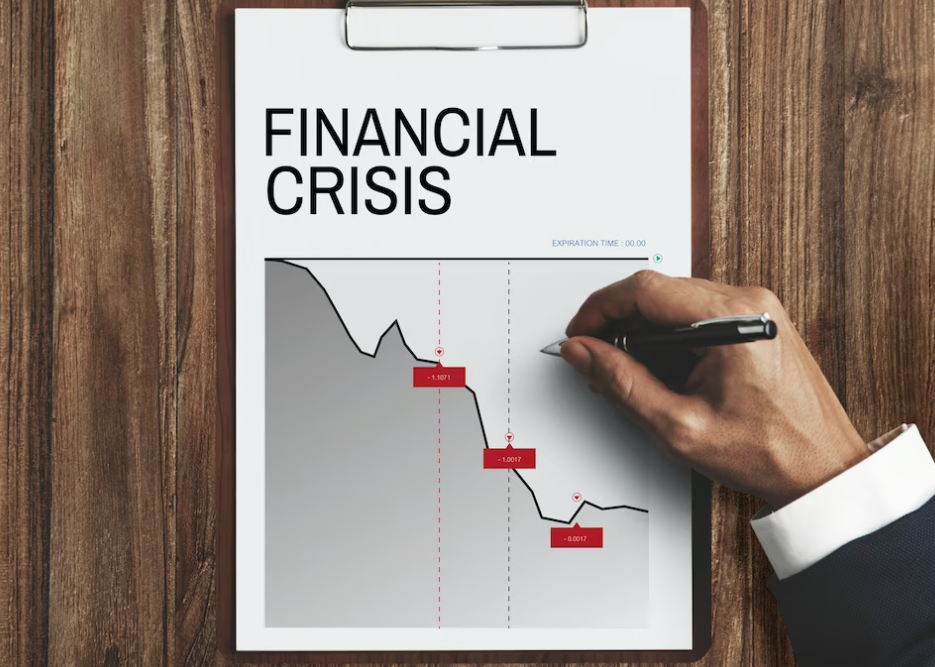If you just completed your Bachelor of Commerce (B.Com) degree, congratulations! You’ve taken a major step in pursuing a successful career. With a B.Com degree, you have plenty of options when it comes to choosing a profession. Armed with the knowledge and skills acquired through your studies in accounting, finance, economics, and other related fields, you can apply to any number of career paths.
Many students make the mistake of thinking about what to do next in their academic or career journey while pursuing the B.Com program – or worst, in the last year of their undergraduate degree program. However, the employment market is changing rapidly.
Every 5 years, thousands of new jobs are being invented. Not researching what you can do after B.Com beforehand may mean that you will lag behind your peers when it comes to advancing in your career. But if you are too hasty, you might take wrong decisions which will put you back on the starting line of your career.
That’s why it is important to reflect and research when considering what to do after completing your Bachelor of Commerce (B.Com) – before taking your final exams. Sit with yourself. Do some research. Think about the possible career options you may choose and what should be your career goals.
If you need guidance, talk to your parents and take the help of your teachers and professors or even career counsellors. At this point, you don’t need to stick to one point. Choose a few of them and set them aside.
You can then focus on your B.Com (final year) studies and do the rest after you take your final exam.
Academic and Career Options after B.Com
In this section, first, we will discuss the common academic and career choices students make after they graduate from the B.Com degree program and then, discuss some other options you might be interested in.
Chartered Accountancy (CA)
Nowadays this is the most popular and common opportunity after passing the B.Com exam. In fact, many students pursue Chartered Accountancy along with their B.Com course.

B.Com graduates pursuing CA as a career do not have to sit for the entry-level exam called the CPT (Common Proficiency Test) if they have at least 55% marks in the qualifying degree exam. Other graduates can also enrol for CA if they have 60% or more in their qualifying degree exam.
While enrolling for the CA program, you must know this:
- First of all, this is not the course for the faint-hearted. You need to ask yourself whether I am ready to put in at least 5-6 hours a day, every day till I clear CA. If the answer is no, do not enrol in this program.
You have other options as well. You know yourself better than anyone. Many times, students receive so many suggestions about doing CA from their professors and see so many of their friends going for it that they feel pumped up for pursuing it. However, they need to ask themselves the above-mentioned questions honestly and then decide.
- Check the statistics. It’s true that CA is the second-best course in the world. But only 2-3% of students clear CA (Final) in one go. If you know that you are committed and pull it through, go for it.
- You need to keep at least 3-5 years in your hands to complete the CA program. You need to complete a full-time articleship of 3 years, do 100 hours of information technology course, and clear a total of four groups in the IPCC (Integrated Professional Competence course) and the CA (final) exam to become a Chartered Accountant.
Think well about the pros and cons. Calculate the extra money you will get post-CA, but also consider what else could you do in those 3-5 years if you didn’t pursue this program.
MBA (Finance)
At SMS Varanasi, MBA in Finance is one of the most popular specializations. But many students make the mistake of thinking that pursuing finance is the same as pursuing accounting. It’s not.
Finance is a vast field and accounting is only one part of it. If you still want to do MBA Finance, there are myriad options you can choose from. The cream prepares for CAT, XAT and GMAT. You will need to start preparing for these exams during the final year of your Bachelor of Commerce program or earlier.
Besides IIMs and ISB, many B-Schools are offering quite good MBA courses in India. SMS Varanasi, for example, is one of the top 50 B-schools in India that offers an MBA with several specializations, including Finance.
M.Com (Master of Commerce)
A lot of people go for M.Com after completing their B.Com. You can do the same. M.Com is a Master’s degree course and you can choose many specializations courses while pursuing this program, such as:
- Economics,
- Statistics,
- Finance,
- Business,
- Accounting, etc.
A Master of Commerce program is a good option for those who want to pursue doctoral programs later. Otherwise, considering the course duration, it becomes a bit time-consuming.
Other Options for B.Com Graduates
Company Secretary (CS)

This is a course you can pursue after completing your B.Com. A CS course will help in developing the mastery over laws and management of companies and other firms.
Chartered Financial Analyst (CFA)
This is another course you can pursue post-B.Com if you are interested in the field of finance and investment banking. It will help you develop your skills such as financial analysis, portfolio management, valuations and much more.
In this course, you need to pass three levels and clear an exam for each level. The CFA program will take approximately two to four years to complete.
Business Accounting and Taxation (BAT)
Accounting and taxation can be an exciting career path for any B.COM graduate looking to explore the innumerable financial possibilities within business ventures! The diploma course in Business Accounting & Taxation is a fantastic way of understanding all aspects related to accounting, and tax preparation, as well as interpreting financial statements according to varying performance data.
With this knowledge under your belt, you will gain more confidence when facing day-to-day financial issues or even setting up your very own enterprise!
Certified Management Accountant (CMA)
With a Certified Management Accountant (CMA) degree, you can gain valuable skills that are essential for successful strategic financial planning. You’ll develop an understanding of the big picture – from global perspectives to industry trends– and become well-versed in cost control management. Get ahead with this comprehensive course!
US Certified Public Accounting (CPA)
For those looking to pursue their career in accounting in the US, the US CPA is an ideal credential that could open up immense possibilities. From auditing and taxation to financial planning and cost management – this certification will give you a complete set of skills needed to become successful!
Financial Risk Management (FRM)
If a career in risk management appeals to you, Financial Risk Management (FRM) could be the perfect way for your skillset to take off! This comprehensive course covers all aspects of financial analysis and portfolio management.

Sharpen up on techniques like derivatives trading and quantitative analysis – those are valuable tools that will give you an edge in this exciting field!
Association of Chartered Certified Accountants (ACCA)
Expand your accounting and finance knowledge with ACCA! This professional qualification will help sharpen essential skills like auditing, financial planning and more, – the perfect follow-up to a B.Com degree.
Certified Financial Planner (CFP)
Certified Financial Planner certification is a great way to start your career in wealth management and financial planning. This professional designation equips you with invaluable skills such as investment analysis, estate planning, insurance advice, and retirement guidance – all essential elements for helping clients make well-informed decisions about their finances.
Certificate in Investment Banking (CIB)
Are you looking to gain the knowledge and skills necessary to launch a successful career in investment banking? The Certificate in Investment Banking (CIB) is designed for those who want an edge in this lucrative field of finance.
This course will teach you invaluable techniques such as financial analysis, portfolio management, trading and more – empowering your success!
Bachelor of Education (B.Ed)
After completing a B.Com, you can broaden your horizons by taking on the challenge of pursuing a Bachelor’s degree in Education (B.Ed). Not only will this open up more opportunities for career paths related to teaching and education, but it’ll also provide valuable skills like pedagogy, classroom management and curriculum development that are essential to success in these fields.
Digital Marketing

Digital Marketing is an essential course for those looking to make their mark in the field of marketing. Through this career-building program, you’ll be able to hone your skillset and boost your digital presence through SEO optimization, content creation strategies and social media management techniques!
Government Exams
B.Com graduates have a variety of career paths available to them, including the potential for civil service success through government exams such as UPSC (Union Public Service Commission), SSC (Staff Selection Commission) and Banking. With these prestigious pathways, students can make the best use of their educational experiences while pursuing rewarding roles in public employment.
Insurance
A B.Com degree prepares graduates for a multitude of exciting career paths. Insurance is one option that allows individuals to turn their knowledge into real-world success as an insurance broker or advisor – and with the right course, you can gain expertise in theories, policies and regulations within this dynamic field!
Wealth Management
For those looking to jumpstart a career in financial services, wealth management is the perfect opportunity. Through this course, you can gain an understanding of investment strategies, taxation tips and tricks, retirement planning advice and even estate planning basics – all designed to put you on your path towards success!
Conclusion
So, if you’ve recently finished your Bachelor of Commerce (B.Com), don’t worry – there are plenty of career options available to you! With these courses and qualifications, you can sharpen your skillset and develop the expertise necessary for a successful future in finance. So don’t wait – start exploring your options today and take the first steps towards an exciting new career!





